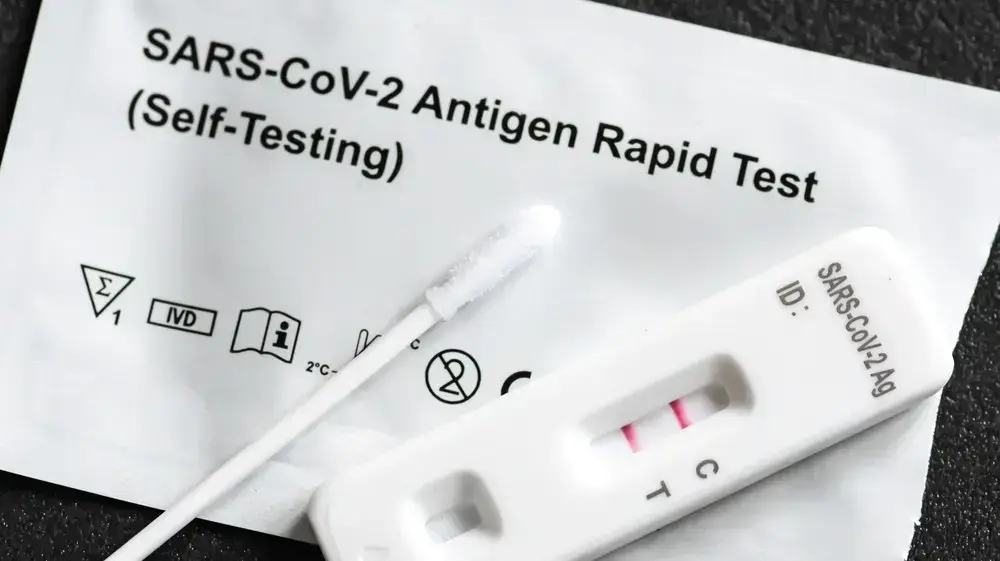Icon: enlarge
Doctors use various blood tests to try to understand whether the body is successfully fighting the corona virus or not.
Photo: Luis Alvarez / Getty Images
The tricky thing about a corona virus infection is its course: at first most people often feel little, then very different symptoms, of which it is usually unclear whether it is really corona or just a cold.
Ultimately, the supposedly mild infection can quickly develop into a life-threatening clinical picture.
The sooner doctors know how the body is coping with the virus, the better they can help.
That is why researchers have been working for months on methods of differentiated early detection in order to better assess the disease.
Blood tests are particularly suitable for this.
A promising evaluation of blood values is the "Dublin-Boston Score".
Irish researchers at the Royal College of Surgeons in Dublin developed this method.
The blood test measures two molecules that provide information about the body's immune system and control inflammation.
The molecule interleukin (IL) -6 is pro-inflammatory, its counterpart is IL-10 is anti-inflammatory.
The test measures the ratio of the two molecules, write the authors in the study, which was published in the journal "EBioMedicine".
Within four days, using the ratio of IL-6 and IL-10, you can then calculate how severely a Covid 19 patient is ill and how likely a severe course is.
The "Dublin-Boston Score" can give precise information after just one week if the patient's blood was examined in the first four days of the disease.
"The test makes it easy to determine the course of the disease and it can be used on all Covid-19 patients who have been hospitalized," says study author Gerry McElvaney.
Blood test with T cells
A first blood test study was published in June, with which researchers also tried to determine the course of the disease in Covid 19 patients.
At the time, however, the Sino-German research team used killer T cells that were provided with a surface marker (CD8).
Killer T cells kill cells in the body that are infected with the virus and on which the pathogen depends in order to reproduce.
The less the patients have of it, the more seriously they could become ill, said study author Ulf Dittmer, director of the Institute for Virology at the University Hospital Essen and Vice President of the Society for Virology.
The study appeared at the time in the journal "The Lancet".
According to Dittmer, patients with previous illnesses that reduce the number of T cells were particularly affected - for example, patients after transplants, in which drugs prevent the body from rejecting the new organ.
In addition, cancer patients undergoing chemotherapy, elderly people - the number of T cells decreases due to age - or obese patients were among the risk groups.
Predicting Mortality
Scientists at the Massachusetts General Hospital now even suspect that the mortality of Covid 19 patients can be predicted with a blood test: They found a correlation between the size and number of red blood cells and a fatal course of the disease.
For the study, they examined around 1,600 adult patients for abnormalities in red blood cells.
A so-called RDW value is determined from the standard test for the distribution of blood cells (RDW test).
With a raised RDW value, the mortality rate was over 30 percent higher, with normal test results only around 11 percent.
According to the researchers, significant changes in the type and number of blood cells have already been observed in other serious diseases such as cancer or diabetes.
Severe courses can be life-threatening for Covid 19 patients.
In the worst case, Covid-19 ends with death, on average just 18 days after the first symptoms.
Icon: The mirror












